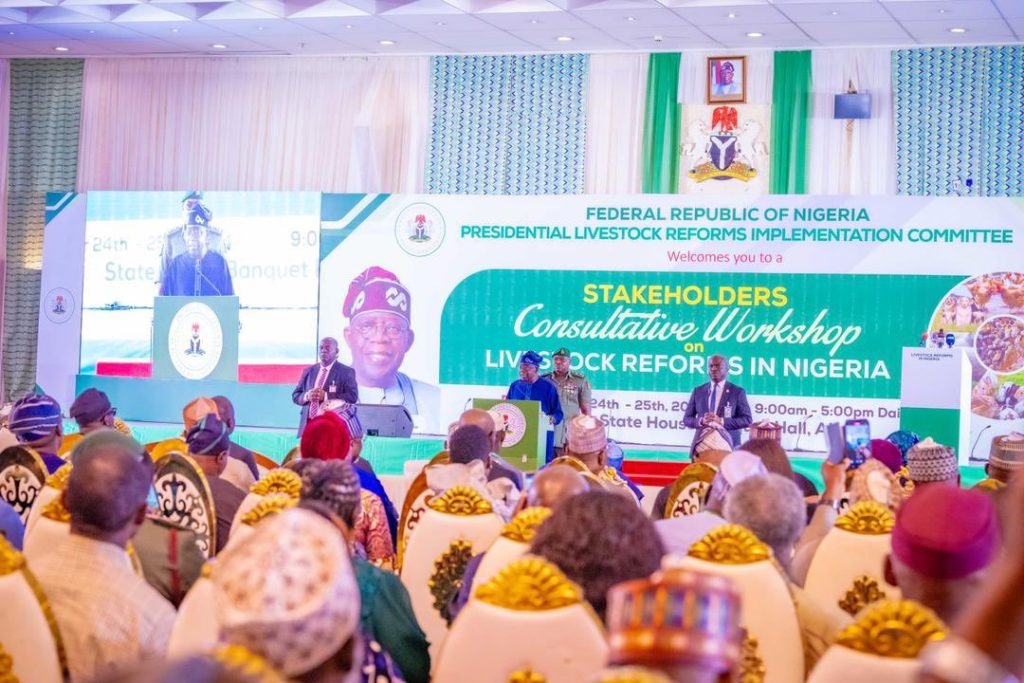President Bola Tinubu has raised concerns about Nigeria’s heavy dependence on dairy imports, revealing that the country spends about $1.5 billion annually on milk and other dairy products.
Tinubu called attention to the need to overhaul the livestock sector to reduce imports and boost local production.
Speaking at a two-day Consultative Workshop on Livestock Reforms in Abuja, the President stressed that neglect of the livestock industry has worsened the country’s reliance on imports.
“The long-term neglect of the livestock sector has weighed heavily on the country’s import bills, with milk and dairy products accounting for $1.2-1.5 billion,” Tinubu said.
He also addressed the challenge of meeting children’s nutritional needs, questioning the inability to provide basic nourishment in schools.
“A country of over 200 million people cannot serve our children one pint of milk in a classroom per day? That is not right,” he lamented.
The President pointed out that local production of animal-based foods remains far below what is required, stating that Nigeria produces only 0.7 billion litres of milk yearly.
He expressed concern about the nation’s low consumption rates of essential foods: “Our per capita consumption levels—8.7 litres of milk, 9 kg of meat, and 3.5 kg or 45 eggs per year—are troublingly low compared to global averages.”
Tinubu also criticised the poor milk yield from cattle reared by pastoralists, which stands at 0.5 to 1.5 litres per day, far below the global average of 6.6 litres.
“We can do much better!” he stressed.
The President praised the efforts of the Presidential Livestock Reform Committee, led by Prof. Attahiru Jega and Prof. Muhammed Yahaya Kuta, in driving change in the sector.
He outlined his vision to transform livestock farming into a profitable industry, saying, “Our shared mission is clear: we aim to transform the livestock sector from its current subsistence model into a thriving, commercialised industry.”
The creation of the Ministry of Livestock Development reflects the administration’s aim to resolve farmer-herder conflicts, which have harmed food security, displaced communities, and redirected vital resources.
Tinubu acknowledged that environmental challenges, such as drought and desertification, have driven herders south, intensifying competition for resources and leading to clashes with farmers.
The Presidential Committee suggested that a combination of ranching and controlled grazing could help resolve these conflicts and promote sustainable livestock farming across the country.

